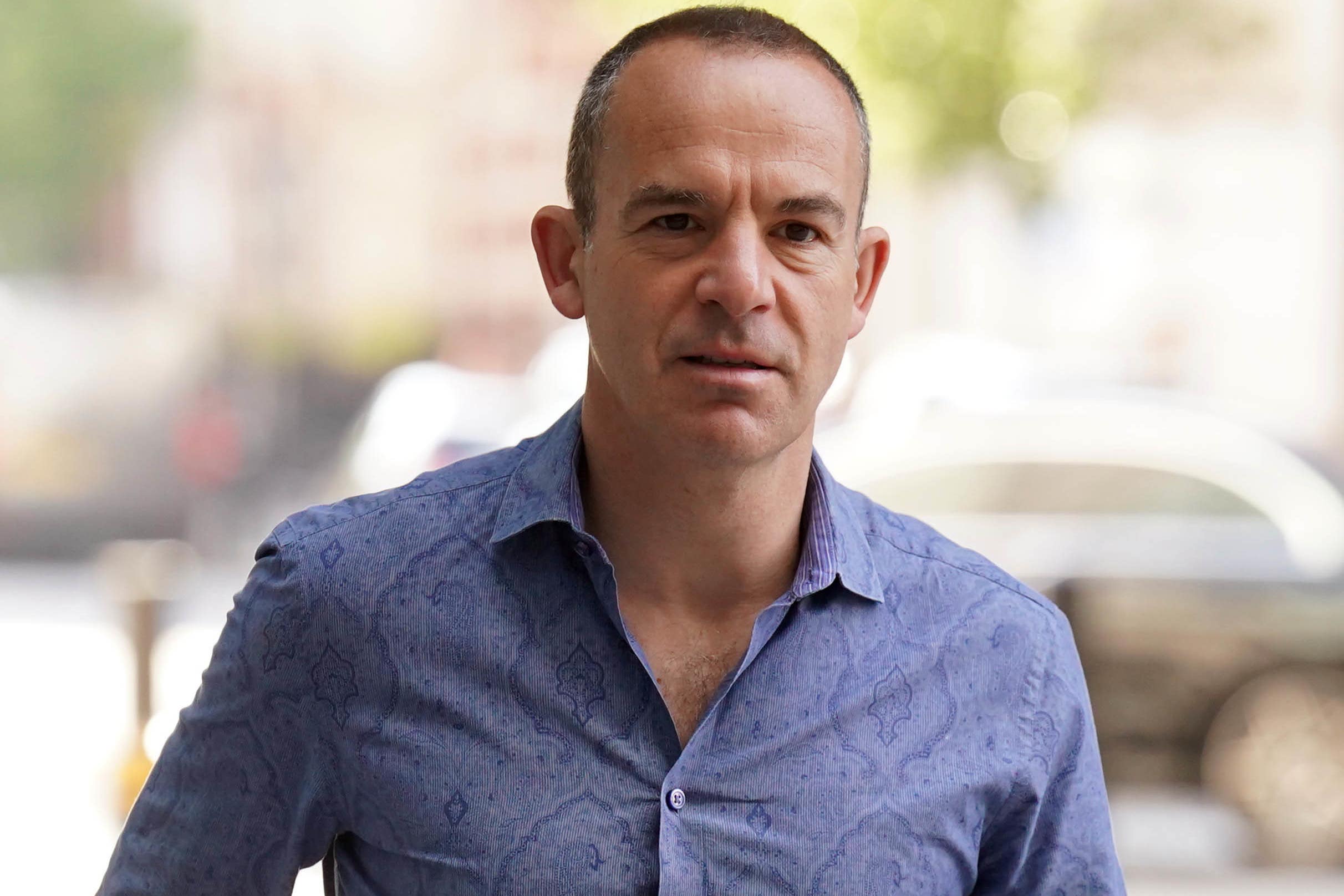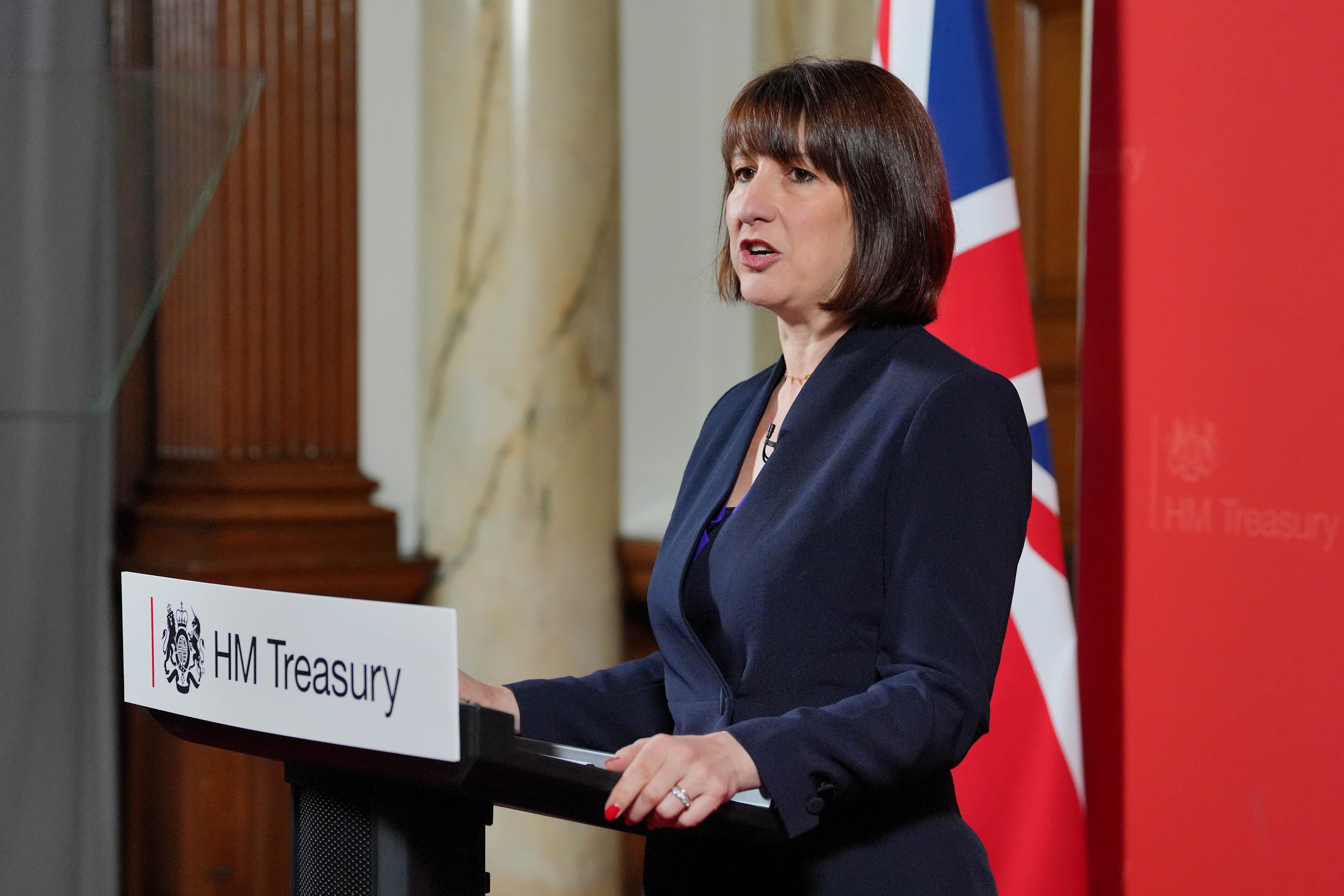Martin Lewis addresses two-child benefit cap amid Labour row
The Money Saving Expert says he wants to meet with Labour’s new chancellor

Money guru Martin Lewis has addressed the controversial two-child benefit cap as the policy divides Labour’s ranks.
Writing about the issue on the Money Saving Expert website, Mr Lewis said: “This is the one that is being discussed in the media. This is the one there’s all the political issues about.”
Looking to clear up confusion around the measure, Mr Lewis goes on to explain that “it means if you have more than two children, then you won’t get any additional benefit for the costs that they are incurring you (on Universal Credit and Tax Credits).”
The money expert has also set his sights on the government by calling for Rachel Reeves to “fix unfair systems,” in an open letter to the new chancellor.
The four main issues he raises are the high-income child benefit charge, carer’s allowance, lifetime ISA withdrawal fees, and the tax-free childcare scheme.
The Money Saving Expert founder calls these “non-partisan issues of financial injustice,” and asks to meet with Ms Reeves and her team to discuss them.

Mr Lewis adds several other areas of concern from student loans to mortgages, but says he doesn’t want to “push my luck too far.”
However, Mr Lewis stopped short of also calling for an end to the two-child benefit cap in his letter, as he did with several other fiscal policies.
Here’s an overview of the four “financial injustices” the money expert has taken issue with:
The High Income Child Benefit Charge
The first measure Mr Lewis raises is the High Income Child Benefit Charge. This is a tax charge that must be paid if a parent or their partner has an individual income of over £60,000 and either receive Child Benefit.
This threshold rose from £50,000 in April 2024, a move which Mr Lewis welcomes. The tax charge means that a parent earning £65,000 must pay back £332.00 in child benefit (for one child).

At around £77,000 the tax charge rises to £1,131.00 – meaning the entire child benefit amount need to be paid back.
Mr Lewis has been outspoken against this measure, and asks Ms Reeves to contine the “review to shift to a household income assessment” which was promised by her predecessor, Jeremy Hunt.
The money expert said: “This is an issue I received an unprecedented volume of correspondence from the public about, it impacts huge numbers of people, and many care deeply about it.”
Carer’s Allowance
Mr Lewis next takes aim at the controversial Carer’s Allowance benefit. The policy gained attention last year when it was revealed thousands of carers had been forced to repay large sums after breaching the earnings rules, often by small amounts.
The policy grants carers who earn £151 or less a £81.90 per week allowance. Those who earn even a penny more become ineligible for the benefit.
Mr Lewis explains: “most benefits, including Universal Credit, have a taper, so if you go over the threshold, the payment received is gradually reduced.
“Carer’s Allowance only has a cliff-edge, leaving many to plummet off.”
The money guru asks the chancellor to move the benefit to a tapered earnings model, and apply it retrospectively to carers facing “crippling” back-payments.
Lifetime ISA (LISA) withdrawal fees
LISAs were introduced in April 2017 as an incentive for first-time buyers to save for a mortgage deposit. You must be over 18 but under 40 to open an account.
Unilke a regular ISA, only £4,000 to be deposited can be depsosited into a LISA each year, but the government will add a 25 percent bonus to the savings.
This means the account can yield a maxium bonus of £1,000 a year – much higher than any regular ISA or savings account.

But there is a catch: the maximum house price limit the LISA can be put towards is £450,000. This has been frozen since 2017, in which time average house prices have risen 27 percent.
However, if an account holder wants to withdraw money for any other reason than purchasing a property, they must pay a 25 percent charge or wait until they turn 60.
This system also means that a withdrawal would also take away an estimated 6.25 percent of the holders own funds, Mr Lewis calculates.
He writes: “many who have saved in a LISA to build a deposit, as the state encouraged them to do, now face paying the Government a fine simply to access their money to buy a first-time property – as they’re now priced out and it’s above the threshold.”
Tax-Free Childcare: change the name
The Tax-Free Childcare scheme grants working parents up to £2,000 a year to help with the costs of childcare.
However, Mr Lewis points out that the scheme is not a tax deduction, but rather a 25 percent top-up to what parents save for childcare costs.
Changing the name, he argues, would increase uptake, encouraging an estimated800,000 families to join the scheme.
He says that research conducted by Money Saving Expert shows “a simple name change to ‘Help to Pay for Childcare’ made people who could be helped to claim four times more likely to understand the scheme.”
For the latest benefit payment dates and news, check The Independent’s guide
Join our commenting forum
Join thought-provoking conversations, follow other Independent readers and see their replies
Comments
Bookmark popover
Removed from bookmarks